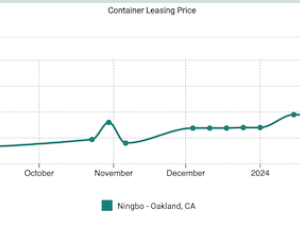A great deal has been learned in recent months about the tactics employed by pirates operating in high-speed RIBs and armed with high-powered automatic weapons and even rocket-propelled grenades (RPGs). In the light of experience gained in repelling these attacks, not always successfully, Videotel has been able to put together a package that shows what preventative measures should be deployed.
Videotel has invited experts to comment on many other controversial subjects now being widely discussed such as whether to arm crews or carry trained guards, often former military personnel. Those who participated in the making of the film, which is available in both video (VHS) and DVD format or as an interactive CD-ROM, include leading maritime organisations, EU NAVFOR (Somalia), the US Navy and a number of major shipping companies. Among the owners are some with direct experience of actual or attempted hijackings.
Examining the issues
Piracy & Armed Robbery Edition 2 is centered around the key issues associated with piracy and the problems seafarers may encounter when confronting an attack, and the consequent issues if an attack is successful. The Somali pirates have brought with them new problems since many of their attacks involve the ship and crew being held for weeks or months while a ransom is agreed; previously the 'hit-and-run' robbery, often accompanied by high levels of violence, was the greater risk.
Videotel highlights the steps being taken by the maritime industry and ship owners alike, often with military assistance, to protect seafarers from these threats. Clear descriptions of the work undertaken by EU NAVFOR and the International Maritime Bureau (IMB) should reassure seafarers that substantial resources are being committed to keeping them safe when in the dangerous waters of the Gulf of Aden and the Indian Ocean.
The programme emphasises the need for ships' crews to be well trained and well prepared before entering high risk areas and stresses the need to contact the relevant reporting centres immediately if any suspicious activity is observed. The programme also explains the wider efforts of international organisations and governments to eradicate piracy from the seas.
The programme examines different attacks and suggests ways in which ships can minimise the dangers when they are in known high risk areas. An Anti-Attack Plan, which makes access to the ship very difficult, will often mean that the pirates withdraw and search for an easier target.
Whether an attack is an opportunity seized by petty criminals wanting cash/valuables or an assault by highly organised armed gangs intent on hijacking the ship and/or its cargo, the result is often traumatic for the ship's crew. Consequently the programme also addresses medical issues such as Post Traumatic Stress Disorder that can result from a pirate encounter.





